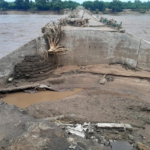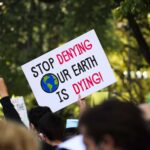Heat waves across Africa are growing more intense, hitting more frequently, lasting longer, and driving temperatures to dangerous levels that threaten health, food, and energy systems, a new study warns.
Researchers at the University of Illinois Chicago (UIC) compared heat wave patterns between 1950–1979 and 1985–2014, finding a sharp rise in both frequency and duration.
Once rare, extreme heat events now strike as often as every two years and last nearly three times longer than in past decades. Researchers traced the shift mainly to greenhouse gas and black carbon emissions from fossil fuels, with natural variability now accounting for less than a third of recorded events.
“Africa’s limited adaptive infrastructure means these heat waves can have greater consequences,” said Akintomide Akinsanola, head of the Climate Research Lab at UIC.
“Raising awareness is critical to saving lives,” he added.
The health risks fall hardest on infants, older adults and people with chronic illnesses. In April 2024, Kayes in Mali endured temperatures above 48°C, which strained fragile power grids and reduced farm yields.
Heat waves ripple through economies by crippling agriculture, drying up water supplies and stressing energy systems. Prolonged heat also fuels droughts, migration and conflict.
With Africa’s population nearing 2 billion, researchers warn that the risks could spread far beyond the continent.
The team reported that sulfate aerosols once helped cool the atmosphere, but their influence has waned. Greenhouse gases and black carbon now dominate as the main drivers of extreme heat. Rising near-surface air temperatures mirror the increase in heat wave activity across all regions of Africa.
“From productivity losses to food shortages, the impacts are wide-ranging,” Akinsanola said. “Climate change is already shaping Africa’s stability and development pathways.”
Looking ahead, the researchers plan to test how global emission cuts under the Paris Agreement might influence future outcomes. They urge governments to strengthen forecasting systems, improve health responses and expand resilience planning.
Although Africa contributes little to global emissions, it bears disproportionate impacts. Experts argue that fairer international action is needed reducing emissions worldwide while ensuring African nations gain the tools to adapt.
For Akinsanola and his team, the message remains clear: tackling Africa’s rising heat waves is not only a matter of climate science, but also of justice.










